[21+, jem/jess, she/her] personal+art blog mahoyaku / ptn / op / hsr / tma / hypmic / bungou stray dogs / literature
Don't wanna be here? Send us removal request.
Text
told my sister that i listen to the sh2 soundtrack to relax and she went “ok freak <3”
0 notes
Text
when wake up dead man comes out i'm going to be so annoying about it. i already just endlessly watch glass onion as my comfort movie and would do the same for knives out if it was also on an easily accessible streaming service
#dumpling thoughts#praying for a theatrical release for wake up dead man because i would sacrifice an arm to go see it
0 notes
Text

just a lil' tipsy 🥴 made on clip studio paint
940 notes
·
View notes
Text
(I originally wanted to just put this as a reply on the post but clearly got too excited and had too many thoughts and hit the character limit too quickly.. >_<;;)
I always love seeing people writing/talking about my favorite book, so thank you so much Slug for sharing your thoughts on Babel!!
I think all your criticisms of the book are very valid and I've seen them come up a lot in other reviews as well. It's a little bit funny to me that the Babel gets criticized for being either too basic or too didactic with its exploration on translation and translation theory, but I think it's fair to say that if you're a reader who has a lot of experience in this field (or even bi/multilingual), you're likely not to find much of what Babel explores in that area to be very interesting since it's treading ideas that you've already had many developed many thoughts about for a long time.
I also agree that Robin can feel like he's just a cardboard cutout being dragged on strings and does arguably very little throughout the book, but to me this is what actually makes him a more compelling character! his inability to take any decisive action, to properly reckon with his identity, who he wants to be, and what he will decide to stand for until the very last moment (and by then it is too late) makes him a really tragic sort of character, that made the ending for me hit a lot harder at the end. Robin is forced to cast away his entire identity from the very beginning of the book, taking on a name at random that he adopts for the rest of his life, and only at the very end does he think about his mother's last words to him - his true name (which we never actually learn and honestly this fact haunts me constantly) - does Robin find some measure of peace with all that's he's been grappling with throughout his life. and of course it only happens at the very end a bit too late, once he's decided to take the most decisive action of all.
there's a good point made about Babel the story as a piece of narrative translation, in that the narrator for Babel is the author of a fictionalized account of the translator's revolution. the fictional narrator authoring this historical narrative is by their very nature taking their own artistic liberties about the actions, motivations, characterizations of the people involved in the revolution they are writing about. it's a historical narrative penned with the narrator's best guess (we would hope), but also likely to be inaccurate on some level in about. well, nearly everything. so it's possible, in a way, to view things like how most of the characters can be easily divided between being "good" vs "bad" based on whether they are POC or not, to be a narrative device employed by the fictional narrator to simplify the historical narrative. (once again circling back to any historical account of an event, written later. how will history remember these events and the people who were linked to it?) of course, that leaves out the actual author of this book and whether any of this layered bit of nuance was ever actually RF Kuang's intention, but I do agree that there are missed opportunities for Babel to provide more nuance, instead of the current good/bad sides the story does present.
I again admit that Babel is one of my favorite books so I know that some part of me does a whole lot of mental gymnastics to justify the story and its flaws with its execution.. it's definitely not perfect and I can really understand why Babel's execution doesn't work for everyone, but it's why I also really like to read other people's thoughts on it, positive or not. I'm also definitely not an experienced translator, so Slug, reading your really detailed thoughts on Babel and how it tackles translation as a whole was really interesting to read. thank you again for sharing!! (and giving me an excuse to yap about Babel)
A Reflection on Translation's Role in R. F. Kuang's Babel or the Necessity of Violence
I don't think I've ever encountered a work that pairs messages I so completely agree with and an execution that I so profoundly dislike. What a frustrating combination.
I'd had this book hyped up to me by colleagues in the Jp -> En media translation field, and I went into it with the impression that it was an adult fantasy/dark academia novel. I don't read much dark academia--the genre doesn't tend to do much for me--but due to a stroke of unfortunate timing had read dark academia's posterchild, Donna Tartt's The Secret History, just before this, leading me to draw unfavorable comparisons between the two. Furthermore, despite its marketing, Babel strikes me as much more of a YA novel--or at the very least pure pop fiction--and inherits many subjectively negative traits from this classification. Too high expectations, a dislike for the book's genres, and a greater understanding of translation theory than the lay audience--I was never a part of Babel's target audience and had little chance of being perfectly satisfied with it.
Nevertheless, I do think the book has tremendous value to those who aren't translators/translation studies academics or who enjoy dark academia pop fiction. While I don't read much English pop fiction, my subjective lack of enjoyment is not a statement of objective lack of value in this type of literature. I would highly recommend this book to anyone with even the slightest interest in language's effect on the world, and I commend R. F. Kuang's ability to deliver Babel's important messages to a wide audience.
At the same time, the book's status as a translation of 18th century events to a modern audience is fascinating and bears looking at, particularly in how this framework serves to undermine the characterizations and, consequently, the novel's core messages.
The Basics of Babel (Beware of Spoilers!)
Babel is, first and foremost, a medium to deliver certain key messages. The pursuit of empire is inherently evil; when the ones in positions of power will never listen, violence is one of multiple necessary tools; together we stand, divided we fall; spheres of oppression overlap in intersecting patterns; revolutions disproportionately affect the already disenfranchised; even so, structural change is necessary to alleviate structural ills; academia appears to be disconnected from the real world but has real, lasting impact. And so on. I agree (as would, I assume most of this audience--I don't think any of these ideas are especially challenging) with all of these; I'm also not trained in these fields and don't have much to comment on here.
Of secondary importance and primary prevalence in the novel are messages about language. Translation is both a tool of violence and liberation. There is inherently a degree of "betrayal" (the book's term) or "transformation" (mine) in all translation. Language and translation have real effect on the world and its individuals. It is impossible to translate with absolute fidelity and yet an absolute necessity to try. Translation--and by extension, all communication and all human contact--is the necessary violence expressed in the subtitle.
And again, I agree! I agree so completely I struggle to remember a time these themes weren't so self-evident to the point of being part of my self. Where my disagreements begin to creep in occur at the level of the characterization where, by virtue of being flattened in the "translation" process, the characters are inadvertently dehumanized to the degree of undermining these core concepts.
Babel consists of two distinct segments, the former being a 400-page sprawl of the four protagonists' upbringings and undergrad experiences in 19th-century fantasy Oxford as translation students. In this universe, magic is performed by matching a pair of words with the same denotative meaning in two different languages. The unshared secondary meanings or connotations are then manifested into the real world, thus implementing the spell. As a simple example, an English watermelon is not an English vegetable, but a Japanese スイカ is a Japanese 野菜. Therefore, if 野菜 and vegetable were matched, this spell might latch onto the notion of a watermelon/スイカ--something that exists in the Japanese definition but not the English definition--and make the melons grow faster. The protagonists thus spend the bulk of the novel learning translation theory, spell crafting, and the ways in which the British Empire is built upon the back of these spells and global exploitation.
Tensions slowly ramp up until one protagonist ultimately murders another, at which point the somewhat doddering pace revives and proceeds at a brisk clip for the last 130 pages while the surviving pair of "good" protagonists stage a revolution out of Oxford's translation magic hub. While the revolution ends in death for all but two of the "good" characters, it is implied that the revolution's aims are largely successful, with the bulk of the British Empire's spellcasting abilities destroyed. This latter segment of the story has some of the same juvenile, almost fairytale-esque simplification of the rest of the book (it's a tempting fiction to believe the destruction of a single building by a small handful of elites could bring an empire to its knees; this book ultimately reads as an academic's power fantasy), but I actually quite like it compared to the rest of the book. The narrative finally grants the main character some much-needed agency, the characterization improves by leaps and bounds, and the protagonists' views are at long last explored with contrasting and three-dimensional opinions. It's a welcome breath of fresh air and complexity.
The problem, as I see it, is that because Babel tackles such critical and multi-faceted ideas as the ethics of revolution and translation, complexity is a necessity that Babel too often forsakes. Babel flits between the competing notions of an educational call for action spoken by real, imperfect people and a cozy, somewhat twee fantasy of paper dolls coming together across racial, gender, and class lines for justice. If the work wants to discuss dehumanization via language, it can't afford to dehumanize its own characters with its language.
Babel as Translation
Kuang's narrator and narrative work hand-in-hand to produce this uncomfortable and clumsy effect.
The book is framed as a historical text written by a minor participant in the revolution in an effort to humanize the characters, "a record that doesn't make us out to be the villains." (504) This aim is achieved as Kuang's narrator follows the internal life of Robin Swift and, to a lesser degree, the three other members of his Oxford cohort in dramatic fictional prose. The text is peppered with footnotes providing extra context, much like a translator's gloss, generally about historical injustices but with occasional dips into the protagonists' private thoughts. The narrator themself, while content to remain in third-person, injects their personality heavily with didactic commentary on oppression and translation theory. I don't knock this as a storytelling technique in and of itself; a brutal hammer of a narrator could be an interesting parallel to the brutal hammer of systemic oppression. It does, however, create the impression that the narrator is hovering just over the story's shoulder at all times, unwilling to trust that the characters will perform their allotted roles once the narrator's back is turned.
Furthermore, the narrator's voice is firmly grounded in its time and place--the time being 2022 and the place being the leftist internet. The prose is undeniably the rhythmic, somewhat dramatic style presently in vogue in the English fiction market, and arguments are formed in the thinking patterns and vocabularies of modern day English internet discourse. When the work itself is set in the 1800s, this creates a slightly jarring effect--language supplanted into a setting where we wouldn't expect to see it.
This suggests the narrator is, effectively, translating a series of events written in an older English into the English of our day and age.
We must assume the narrator is taking their fair share of liberties. Apart from the inclusion of vocabulary that's wildly anachronistic (the word "narcostate" would not materialize in English until long after the 1830s), we also see the narrator's presence in the similar speech styles of all English-speakers across place of origin, class, and upbringing. Compare the college-educated Robin:
But how do you know? ... You didn't see what I saw, you don't know what the new match-pairs are-- ... It's just... It just feels like--I mean, I'm the only one who's always at risk, while you're just-- (182, quotation picked somewhat at random)
to the working-class laborer Abel:
"Is it really as bad as all that?" Robin asked Abel. "The factories, I mean." "Worse," said Abel. "Those are just the freak accidents they're reporting on. But they don't say what it's like to work day after day on those cramped floors. Rising before dawn and working until nine with a few breaks in between. And those are the conditions we covet. The jobs we wish we could get back. I imagine they don't make you work half as hard at university, do they?" (493)
Similarly, most characters retain the same vocal quirks as the narrator and Robin. See also on page 493, a third character starting and stopping herself in an identical fashion to Robin, "It's just... it's a side of the story we don't often think about, is it?" or on page 529 the same character copying Robin's habit of amending her comments with I mean, "Possibly the younger students... The ones who don't know any silverworking, I mean."
This produces a muted, washed-out effect wherein characters struggle to differentiate themselves on the basis of their personalities. But, in terms of translation, is this necessarily a bad thing? Is it wrong to familiarize the unfamiliar with the vernacular of the target audience?
Fortunately for us, Kuang's narrator has their own opinion on this very subject, delivered to us through the mouth of Ramy, Robin's love interest and generally all-around "good" character. In fact, one of the very first things we learn from Ramy is his dislike for a certain style of translation:
That's a terrible translation. Throw it away. ...and for another, it's not remotely like the original. What's more, Galland -- Antoine Galland, the French translator -- did his very best to Frenchify the dialogue and to erase all cultural details he thought would confuse the reader. ... And he entirely cuts out some of the more erotic passages, and injects cultural explanations whenever he feels like it -- tell me, how would you like to read an epic with a doddering Frenchman breathing down your neck at all the raunchy bits? (52)
Blessedly, we are spared that specific experience--if any raunchy bits existed, Kuang's narrator has trimmed them accordingly.
The reader, at this point, is expected to know little of translation theory on their own and should accept Ramy's opinion as that of fact. Ramy is the first character with purely positive associations in Robin's life, and the narrative swiftly propels us through the process of Robin and Ramy falling in love within a handful of pages. ("Robin felt a strange, bursting feeling in his chest then. He'd never met someone else in this situation, or anything like it..." (50) "...they sat cross-legged on the floor of Ramy's room, blinking like shy children as they regarded each other, unsure what to do with their hands." (50) "And [Robin] wanted so badly to impress Ramy. [Ramy] was so witty, so well-read and funny. He had sharp, scathing opinions on everything..." (51))
The reader is therefore expected to associate a liberal or heavy-handed translation style with bad practices--that is, until we learn that Ramy himself "was always ready to abandon technical accuracy for rhetorical flourishes he insisted would better deliver the point, even when this meant insertion of completely novel clauses." (224) (We must also note that this is the "polar opposite" of a "bad" character's style, which we will touch upon shortly.) Ramy, it seems, is allowed his liberties because he has "an uncanny ear for rhythm and sound. He did not merely repeat the phrases he absorbed; he uttered them in such precise imitation of the original speaker, investing his words with all intended emotion, it was like he momentarily became them." (269) Meanwhile, on page 383, we are told "Non-European texts [translated into English by Europeans]...tended to be loaded down with an astonishing amount of explanatory content, to the effect that the text was never read as a work on its own, but always through the guided lens of the (white, European) translator." This information might have been better received were it not in an explanatory footnote that takes up the half page.
I would like nothing more to give Kuang the benefit of the doubt and assume these hypocrisies are intentional, but writing a heavy-handed 500-page book just to poke fun at heavy-handed translation in a single footnote is either a Modernist masterpiece or simply not happening.
I also understand and acknowledge that there is plenty more nuance to these arguments. The Galland translation of One Thousand and One Nights bears a strong moral impetus toward exact fidelity as an introduction of a work of enormous cultural value to a society largely ignorant of that culture; Ramy's translation is a college writing assignment. Elisions for cultural sensitivity are not the same as additions for aesthetic sensibilities or contextual glosses/footnotes. Kuang's narrator is translating concepts from an academic environment to a general audience, where the balance of power is relatively equal, whereas Galland is translating across a broader power gap between cultures. Etc etc. I don't take umbrage with any of that--I also think Galland's translation practices were unacceptable, and I'd be a fool to pretend I don't take translation liberties when appropriate. My concern is that the general audience lacks this background and, when asked to reconcile these hypocrisies, will draw the conclusion that Kuang's narrator is espousing "white, European = bad / non-white, non-European = good."
Which, in the broadest brushstrokes of this colonial environment, is true! The British Empire--and empire in general--is cartoonishly evil, and I don't care much that most of the white English cast is flattened into 2D caricatures as a consequence. It's the reverse that's far more troubling.
Unfortunately, for the first 400-some pages of the book, the narrator plants all intelligent, kindhearted, or otherwise pleasant thoughts in the heads of non-English characters. (Here, non-English refers to any PoC character born outside of Britain, any half-white characters, and the one "good" Irish character. "Non-English" is a terrible classification system, but as all the "good" characters don't self-identify as British or English anyway, this will have to do for now.) Arguments between non-English characters are astoundingly minor; worse, they have little to no bearing on the overarching plot--it takes the murder of a white man to turn the story from academia romp to goodnatured revolutionary conspiracy. (And this only boils over into full revolution because a white English girl takes negative action!) Non-English characters' worst traits are annoying at best to the point where one, their repeated inability to understand intersectionality, comes across as bizarrely out of character and inappropriately dim-witted. Even then, such comments are set up to be angled at "less oppressed" characters. Robin and Ramy frequently fail to conceptualize the struggles of their female classmates or, at times, have rude thoughts about women. However, when their black female classmate Victoire is having anxiety attacks and white female classmate Letty is suffering nervous breakdowns, Robin ignores Victoire to say Letty is "not helping the general feminist case that women were not nervous, pea-brained hysterics." (368) Victoire simply cannot allowed to be "bad" in any way.
The constant need to be "good" strips characters of any ability to develop personality, deep character flaws, or culpability for their actions. For 4/5 of the book, Robin, Ramy, and Victoire are so caught in the narrator's stranglehold that they appear only little more three-dimensional than the paper-thin villains. This, while unintentional, is nevertheless a tragedy.
The Translated Narrative
Similarly, the narrative suffers from being a modern day experience transplanted onto the 19th century setting.
Protagonist Robin and the other members of his cohort are introduced as linguistic geniuses, all of whom have studied from a young age--and not always willingly--to be part of an elite class of undergraduate translators at Oxford. From the age of eleven, Robin spends hours every day studying Greek and Latin, both of which have historically been taught and to this day are taught with copious amounts of translation work. We are shown Robin translating Latin into English as a child (31)--amusingly, the author he works on will be complained about later as very difficult to translate when taught in the later years of undergrad, an inconsistency I can only assume is unintentional--and have every reason to believe it is done competently. Furthermore, Robin continues to retain his native fluency in Mandarin, meaning he should be intimately familiar with basic translation theory and the differences in language by the time he reaches university.
However, the modern day reader is not expected to share this same linguistic background, and the narrative must quickly bring them up to speed. Thus, upon arriving at Oxford, the narrative takes the audience on a ride through a series of bare-bones basic translation theory lectures.
The first lecture opens on the professor "try[ing] to impress upon [the protagonists] the unique difficulty of translation," (104) an absurdity when presented to characters who have been translating for years. Suddenly, characters are catapulted out of their 19th century elite backgrounds and into the bodies of 21st century freshman.
"I don't understand," says trained classicist Letty. "Shouldn't a faithful translation of individual words produce an equally faithful text?" (105) (Later, we discover that Letty's translation style leans strictly literal in opposition to Ramy's. This is posited as a bad choice--which is broadly speaking true--but becomes an uncomfortable parallel between Letty's unyielding, "bad" personality and her "bad" translation choices. Ramy also equates being a good listener and with being a good translator (535), leading to one of the few places where I openly disagree with the narrator. In an ideal universe, truly good translation could only be unlocked with great care; unfortunately, technical skill does not equal strength of character.)
"Is faithful translation impossible, then?" a professor later "challenges." "Can we never communicate with integrity across time, across space?"
"I suppose not," reluctantly (153) says Victoire, who is "raised to read and compose and interpret." (541)
The notion that these characters can have drilled in languages and translation for years on end without having ever considered these basic concepts is laughably absurd. It is like an engineering student receiving a full-ride scholarship to MIT, walking into class on the first day, and saying, "What are all those letters doing on the board next to the numbers?"
And yet the narrator would have us believe this because, fundamentally, the narrative is that of a 21st century university undergraduate's experience. Someone with an interest in languages but little formal training in translation--we certainly don't teach that in American high school--could, conceivably, walk into these lectures and be charmed by "this dramatic mysticism, these monologues that must have been rehearsed and perfected over years of teaching. But no one complained. They loved it too." (107)
Our imaginary 21st century undergrad takes Robin by the hand and leads him along four years of lectures, luncheons, exams, rowing club, and endless giggle sessions with friends. It's cozy and cute. Everything is magical and ready-made for a Pinterest board.
Meanwhile, the bloody cogs of the British Empire churn relentlessly in the background. Robin is invited to participate in a largely low-stakes revolutionary operation and, for about 200 pages, most of his inner turmoil centers around the conflicting desires to lean into the revolutionary movement and the desire to cement himself in a cushy life at Oxford.
Here, the lighthearted atmosphere is by design; for the modern-day reader to feel shock at the abrupt turn in tone, the luxuries and conveniences of an idyllic modern-day academic experience must be shown. However, it must be stressed that this tonal shift occurs over 400 pages in. The slow pace hinders the narrative's ability to be considered in its full 19th century ramifications. We spend so long in Robin's 21st century head that the core struggle, for a sizable chunk of the novel, is coming to terms with one's position of privilege in society and how that affects one as a translator. These are valuable things to consider, and it is something the audience--most of whom are closer to Lettys than Victoires in terms of societal position--should devote time and attention to, but I cannot help thinking there could've been more efficient use of space in this book. It is difficult to examine more of the hard-hitting topics when so much of the book is devoted to the author's nostalgia for their college experience.
The narrative's other core issue interweaves with something I touched upon earlier, the lack of agency in its core characters. For most of the book, Robin is largely shepherded along by forces outside of him, giving him an (intentional) learned helplessness under the oppressive colonial system. However, likely unintentional narrative choices contribute to this problem and give Robin the impression of being even less empowered than he is meant to be. Robin's first two decisive actions of any note are triggered when another character forces him to make an "It's us or them" style choice. In both cases, Robin chooses to side against the revolutionaries for self-motivated reasons, and the narrative later rewards him with a third "It's us or them" choice motivated by purely selfless desires. These could be great character-establishing moments--if any of those choices mattered. But they don't! After choice 1, Robin winds up in contact with the revolutionaries again due to complete coincidence. After choice 2, Robin faces the personal fall-out of turning in the revolutionaries...until a more pressing issue turns up, only partially of Robin's doing (the question of whether this was intentional or accidental is discussed heavily throughout the rest of the book), at which point the personal issues dissolve and vanish. Oh, and the revolutionaries suffered no consequences after Robin ratted out their safe house. Everything is fine and dandy!
And also deeply frustrating. If Robin's actions don't matter, then why have Robin act at all? Is Robin a person or a cardboard cutout doll?
Similarly, the narrative is littered with deus ex machinas to an unfortunate degree. The reader quickly becomes accustomed to a common narrative structure: A problem presents itself, the protagonists panic and make an attempt to fix the problem, that solution fails, tension heightens--and a side character (often a revolutionary) steps in and resolves the problem. So, too, are the major turning points orchestrated by other people. Robin's father instigates his own murder by approaching Robin. Robin is radicalized by Letty setting the police on the revolutionaries.
Robin, then, has no more control over his person than a puppet until the final 1/5 of the book. This is partially intentional as a means to demonstrate Robin's unconscious conforming to racial stereotypes of passivity as a means to be "accepted," even partially, in colonial British society. Had this vanished entirely upon Robin's dramatic turn to agency in the final hundred pages, I wouldn't have been the slightest bit concerned--but it doesn't. Once Robin seizes control of the magical translation tower on page 448, he sits and waits for outside forces to act. And waits. And waits. And waits. The army arrives, but that's all right, because here come the townspeople, who've made a miraculous turn of heart and are ready to be good revolutionaries alongside the Oxford elites. Oh no, they're running out of food--oh, whew, the problem solved itself by virtue of the townsfolk showing up. Uh-oh, Robin has to make the decision of breaking the siege under flagging moral--oh never mind, here comes Letty to take that problem away. I can't wait for Parliament to respond and end the siege for us, but until then, we just all have to wait. And wait. And wait.
It is 84 pages before Robin takes another action.
Translation as Necessity
I don't fault Kuang for the ideas she presents, nor the means she chooses to employ, but I do think it's a tragedy that her own writing skills are inadvertently undercutting her work. Babel is, at heart, a heavy translation of a fictional 19th century event that accidentally does the very thing it criticizes--making people less than people through the act of translation.
And yet still we must translate.
Kuang is correct and expresses herself elegantly when her narrator says:
Language was just difference. A thousand different ways of seeing, of moving through the world. No; a thousand worlds within one. And translation -- a necessary endeavor, however futile, to move between them. (535)
Communication is an attempt to link two agents to one another, and communication is informed by its medium. The conventions and limitations of e-mail shape a message differently than does a phone. A translation, then, is an act of communication wherein the medium plays a dual role of conveyance device and additional agent. The translator, be they human or machine, must always make choices. There is no chance a message can passage from agent to agent to agent perfectly intact.
But then, can a message ever be perfectly communicated? If languages are only another medium, then so too will the language inform the delivery of the message. The words I've chosen in this essay are not the same as my thoughts, nor is your impression of this text the same as my words. Language itself, of course, has no inherent meaning. Even single words--let's take "vegetable" again--conjure different images and different associations with different people. There is no Platonic ideal of "vegetable" we can point to and say this, and only this, is "vegetable."
And if it's that hard to communicate with individuals who share the same language, what about individuals in other languages? Or how about when languages overlap? My command of English is informed by the facts of my life, both the demographic--white, American, Latino, male, born in the 90s, asexual, multilingual, middle-class, blah blah blah--and the experienced--listened to this life-changing song, read those books, played those games, loved and cherished those other people. Your English, too, is informed by all the millions and millions of things that make up you--some of which may be other languages. If, being as you also speak Japanese, you consider a "watermelon" to be a "vegetable," who am I to tell your concept is lesser?
In the way English is no monolith, Japanese is no monolith. So are Spanish, French, Mandarin, Swahili--every individual uses their language or languages in a different way in an imperfect attempt to express their unique thoughts. It's daunting, then, to be the medium with which someone else reaches out and attempts to convey a message.
But that's no excuse not to try. Rather than not convey anything at all, we all have to try, and try our best, to convey ourselves. The fact that it's impossible to translate--to communicate--should not be the deterrent it so often is. Without conveyance, we are nothing to one another. It is communication that allows us to shape ourselves and shape the world around us.
I think a lot about translation as an act of betrayal or violence. I agree that it can be, and often is, but underlying that I think it's even more simple--translation is an act of transformation. Transformation, or change, can be influenced by malice or sheer clumsiness. We are betrayed by and violated by those who would seek to change us against our will; on a broader scale, it's remiss for anyone working with different languages to ignore the power dynamics between their source and target cultures.
At the same time, is it always such a bad thing to be changed? I'm reminded of all the vocal tics I've picked up from friends or favorite books. It's an honor to see colleagues integrate phrases I often use in translation in their translations; in turn, I'm constantly writing down words I see in their works and adding them to mine. I'm molded by everything I've ever cared for and that's cared for me, and so are you. So is everyone on the planet Earth.
When we communicate, then, it's vital that we do so with care. We must try to be conscious of our changing, even if doing so will not guarantee success. We have everything to lose by not trying at all.
While the nature of today's Japan-Anglosphere relations are nothing like the relationship between the early 19th century British Empire and its colonies, there are undeniable power balances and cultural considerations to be made. I'm always cognizant of the freedom my US salary gives me versus that of my JP counterparts, the skewed relationship of American vs Japanese global power, the US's continued military presence in Japan, and so on. I don't let it bother me on a daily basis--guilt with no outlet isn't productive--and I recognize how very lucky I am to be able to dismiss that at all. I'd prefer to continue to listen to others and, when possible, use what powers I have for assisting.
At the same time, I don't deny that differences of race affect many core tenets of my work. Japan occupies an odd position in the Anglosphere cultural world of possessing both immense soft power and a strong perception of negative alterity. Besides the overtly offensive opinions, we see so often notions of Japanese stories--and by extension, their Japanese authors--as excessively exciting or alienatingly weird by virtue of being Japanese. Japanese society is so polite! Or, on the flip side, Japanese society is so racist! People draw conclusions--sometimes containing a kernel of truth, sometimes not--from the whole and apply it to the individual.
Even talking about it too much leaves a funny feeling in my mouth. When I speak in broad strokes about what applies to how most people use Japanese, will that be taken as a statement about every individual person's command of the language? If I constantly compare Japanese, English, Japanese, English, Japanese, English, won't that serve to make them seem like two irreconcilable things? What about all the many people who make their home in both languages? And third, fourth, fifth languages too? When I talk about English with the unconscious expectation that this is where the lack of alterity is found, am I driving away those who approach English in another fashion? And so on.
It's especially difficult working in media, unlike interpretation or other related fields with small target audiences, when the target audience is so big. I change the way I talk when I address my friends vs my coworkers--but what about when I address a vast sea of people, an audience I can't control? How do I know what English phrases resonate with them? How do I tailor my communications and the communications I've been entrusted with so the messages land home, as close as they possibly can?
What I do, then, is try to translate in such a way that always considers the person first. When a line shines, I want it to shine in English. I want authors to appear clever and goofy and banal, because people--Japanese-speakers, English-speakers, both, and neither--are way, way more similar than we give ourselves credit for. I want my one weird author to sound weird in all the right places, because he's not weird by virtue of being Japanese, he's weird by virtue of being a feral goblin of a man. I want my one socially sensitive author to sound caring and clever, even if the words she uses don't align with English discourse. I want the sexy scenes to sound sexy, the funny scenes to be funny, the kinda stupid to be kinda stupid--because people are dumb. And amazing. And so very, very good.
I think a lot about a beginning Japanese learner saying "I'm sorry!" (which came across as "Because it's my fault!") when hearing her instructor had a cold. I think a lot about the man who spoke very little English and still went "D: Fall!" to alert me when I dropped a bag. I think a lot about how, no matter how imperfect, we all want to express care for our fellow human beings. I love all the many things that make us different, and I love all the many ways in which we're exactly the same.
Betrayal, violence, and care bubble out of us no matter how much we try to stop them. It's on us to channel the ways in which we change the world and it is, of course, a necessity.
This book drove me up the wall. Go read it.
#one last thing (this bit has very little to do with the actual story and more to do with all my sad girl feelings about Ramy and#Robin hence why in tags) -- I don't think that the idea presented with Ramy that good translator = good listener is inherently incorrect#sure it's a very simplified idea and also a very.. romantic sort of ideal? to be perfectly fair this line is sort of meant in a way#that is meant to have some romantic overtones I think. Ramy is saying that when Ramy speaks Robin understands him#when we communicate all we do is hope to be understood and that somehow language will flawlessly translate our intentions and#thoughts and desires. Ramy has been showing himself to the world and hoping to be understood and Robin has been someone who has been able#to take all that and understand him. all good communication starts from trying to understand and just being a good listener#it's exhausting to think about how when we try to communicate our thoughts to others all of the different ways it can be misconstrued and#interpreted but all we can do is hope at least that if our ideas are going to be translated to someone else at the very least they will try#to be a good listener first to what the person is saying before trying to take those ideas and molding it to fit the interpreted version#that our brain processes
29 notes
·
View notes
Text
Arriving at my new wizard tower only to discover that when the real estate listing said "great and terrible", it meant not "impressive and horrifying", but "large and shitty".
2K notes
·
View notes
Text

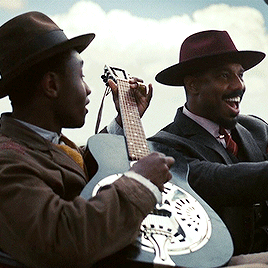
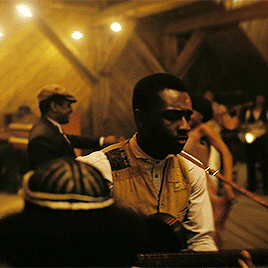

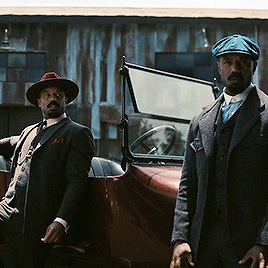

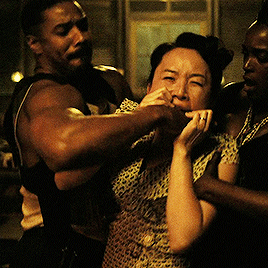
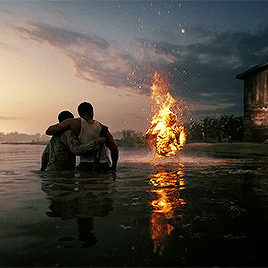

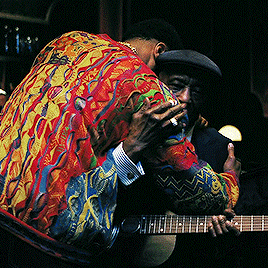
Sinners dir. Ryan Coogler | 2025
7K notes
·
View notes
Text
Sent a 12 year old on a fake Hero’s Journey last week and holy shit he actually did it
50K notes
·
View notes
Text
asking "hey is it fine if I smoke in here" and before you're able to answer I've already set up a full rack of salmon over a fire in your living room
88K notes
·
View notes
Text
getting inspired to create stuff is honestly the meaning of life. like i found a great story and now i wanna make a cool story too. literally could there be any better feeling
17K notes
·
View notes
Text
ever since i was a little girl i knew i wanted to be a stressed-out middle-aged podcast protagonist entangled in horrors beyond his comprehension
4K notes
·
View notes
Text
in senior year of high school I had to keep a blog of informal posts as part of an assignment for my eng lit class. I was scrolling through those posts last night and I can't stop thinking about this bit I wrote:
and i think i might be kind of afraid of this idea that one day, it won’t matter to me if i’m just drifting through life without meaning, and that one day in my life when things might feel really hopeless, i’ll be like this. i won’t even know that i love the earth so much that i want to stay forever
#me @ past me: girl.#this was relevant to a poem that we were reading for a class but im like DAMN stop being sad girl hours in your CLASS ASSIGNMENT#THAT YOUR TEACHER (probably) HAD TO READ#“informal writing” assignment except it's really just my personal diary of me working through some things#still working through things#dumpling thoughts
2 notes
·
View notes
Text
it’s really funny to me that everyone I know has assumed that the book club I’m in is with other women or queer people.. when it is, in fact, made up of straight guys. and me! I’m the token diversity hire (lol) and everyone is like NOOOO IM SO SORRY
#me too /hj#it makes for interesting discussion(?)#for better or for worse I have learned that I am violently allergic to media aimed for the straight white male audience#I can only tolerate so much of it before my body starts to wither away#dumpling thoughts
0 notes
Text
"I asked chat gpt"
Sucks for you, I asked the ceasless watcher and I now legally own your most traumatic experience
18K notes
·
View notes
Text


Pov: you’re Keir’s Vesper and he’s half-heartedly trying to get you both back on track after finding a colony of cats. It’s a honey trap shtick, and he’s even dressed for his unfortunate role. He desperately doesn’t want to go.
Take your time with the cats.
734 notes
·
View notes










